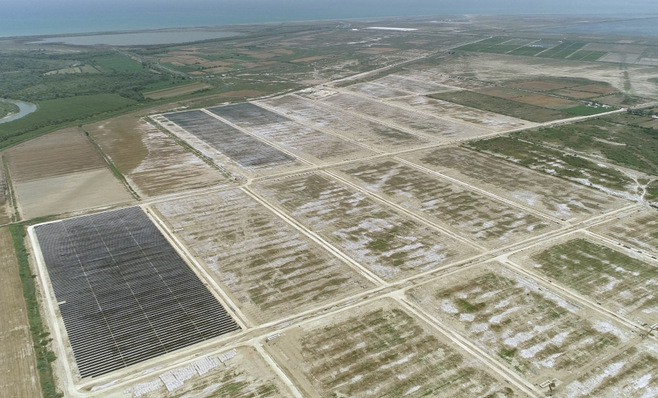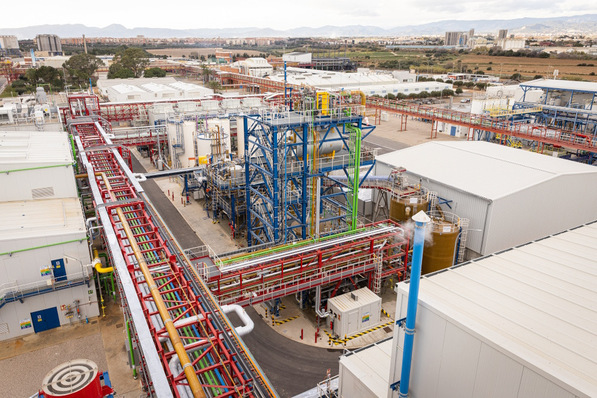In Part 1 of our interview, Björn Broda, Head of Corporate Strategy, Communications & Public Affairs within the juwi Group gave us a general overview of the involvement (or lack thereof) of the Big Five oil companies in the energy transition:
Do investments in renewables only serve an alibi function?
Not necessarily. If the oil and gas companies force the pace of transformation, their massive financial power, trading skills, international experience and political contacts will also bring benefits in difficult markets. The technical skills of the oil majors, for example in the offshore field, should also be taken into consideration.
Are there any other activities?
Apart from investments, there is a growing trend on the part of the oil companies’ trading departments to sign long-term green power purchase agreements (PPAs) for carbon-neutral power supplies to their own operations and also to third parties. In the long term, the topic of green hydrogen could also become increasingly important for the decarbonization of refinery production processes and safeguarding the oil companies’ own infrastructure against rising CO2 prices or other restrictions.
Why are the oil companies still struggling with renewables today?
One of the main reasons in the past has certainly been the fact that the decentralized energy transition has led to beginnings which were very small and fragmented in comparison with the oil industry itself. Even a relatively small company like Dong of Denmark needed more than a decade in order to evolve into the largest offshore wind project developer Orsted. In the meantime, what was a pioneering market has now become a global phenomenon with appropriate investment opportunities, even for the largest companies in the industry. The second reason has been the moderate return on capital as a result of regulated feed-in tariffs; this meant that the business has rather been attractive for utilities and financial investors in the past. The return on capital is additionally leveraged via financial instruments such as Green Bonds or partial asset rotation. However, even then, returns remain below the historic expectations for oil and gas exploration. Furthermore, Big Oil must make sure that it does not reduce returns too severely by the sheer size of its own funds.
Will the oil majors now need to rethink?
The oil industry faces a dilemma when making investments. On the one hand, investors call for a sustainable business model. On the other hand, oil shares are expected to meet stringent return and capital cost requirements. As a result, the oil industry needs to stabilize its cash cow of oil and gas exploration with high investments at the same time as paying attractive dividends and expanding its activities in the renewable sector. Historically, the oil majors have worked with high equity ratios in view of volatile oil prices and the very long-term investments in high-risk countries. To date, this has been an obstacle to the expansion of the business model of wind and solar which has been based to date on stable project financing, with its fragmented, highly competitive market and comparatively low margins. However, the comparison is not appropriate as the profitability experience of the oil industry is the result of a long-term process of concentration and cannot be continued in precisely the same way as a result of the global energy transition. For example, the growing area of gas is currently facing strong pressure on prices as a result of the more sluggish economic situation and the expansion of photovoltaics, which had been underestimated for some time.
Is the situation in project development different?
Indeed it is. We are keeping a close eye on the recent tendency of oil companies to acquire direct participations in project developers. The higher risk profile of project development fits very well with Big Oil. With capital increases, the companies concerned such as LightsourceBP or the Equinor affiliate Scatec will have additional growth capital for big projects and international expansion. To date, cooperation has mainly taken the form of minority holdings, which relieves the burden of appropriate governance requirements on project developers. In addition, they can obtain low-cost debt capital more easily via these platforms. The global trend away from fixed feed-in tariffs to PPAs or even merchant projects is also in line with the operations of the financially powerful oil majors with their trading and marketing capacities. The growing volatility of power prices boosts the margin potential. Investment in wind and solar would then be less attractive for financial investors.
Do project developers like juwi need to be concerned?
No one needs to be concerned. The demand for investments to implement the energy transition is enormous and the transformation of the oil industry will create even more demand for wind and solar projects. For example, juwi recently sold the largest solar project in south-east Europe, with 204 megawatts, to the Greek company Hellenic Petroleum. In addition, the financial power of the oil companies will allow more PPAs to be signed and more projects to be financed in an era when subsidies are gone. Despite the cooperation models with the project development companies mentioned above, there will still need to be greenfield developers and many decentralized projects will be simply too small to be interesting for Big Oil. In project development, the key factors will still be speed and local proximity. These are not exactly the key characteristics of the asset-intensive oil industry.
Are there any challenges and risks?
Of course, project developers associated with the oil majors benefit from capital increases, for example for the purchase of project rights. In addition, the capital-intensive development of a company’s own asset portfolio within a developer IPP model allows for stronger standardization in operations and maintenance (O&M) and stabilizes the business in volatile market phases. Cooperation with the oil majors in the PPA area is more problematical. Especially in markets where power customers have lower creditworthiness, this can influence the distribution of margins along the value chain or even exclude the project developers. It is often forgotten that the predecessor of the Big Five, Rockefeller’s Standard Oil, grew to a vast size not through oil production but through its dominant position in the refinery market.
Björn Broda:
Björn Broda works on strategic questions, new business models and international energy markets. Following various management positions in finance, strategy and M&A in the energy industry, he joined juwi in 2016. Since 2018, he has been Head of Corporate Strategy, Communications & Public Affairs. (mfo)







